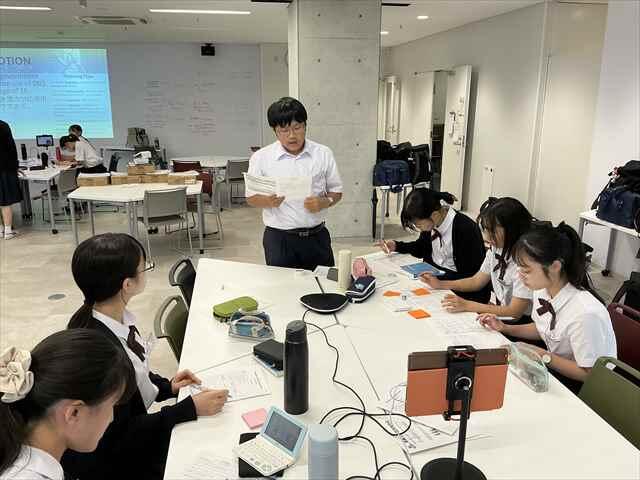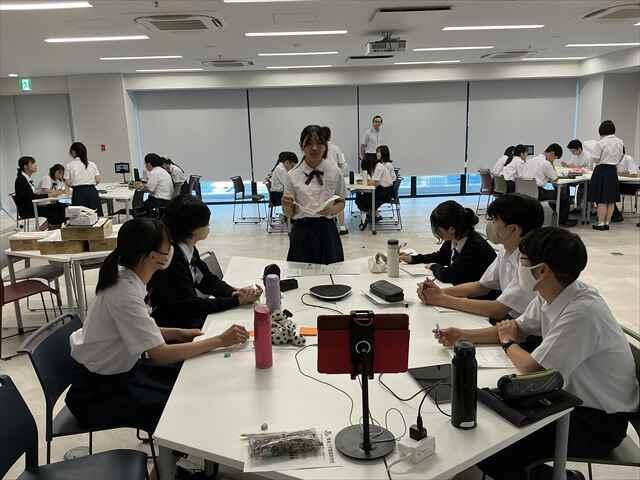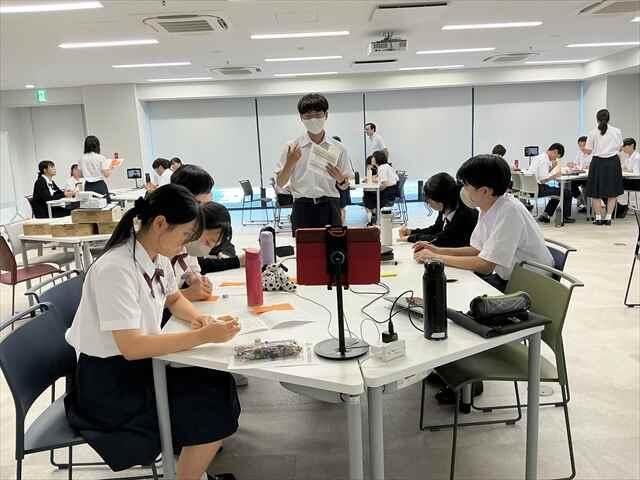グローバル教育〔 地球的規模で考える 〕
PDA即興型英語ディベート
2025年度第4回即興型英語ディベート
On Monday July 7th, we held the fourth debate meeting of this academic year.
First, students were introduced to four ways of developing powerful argument: ethos, pathos, logos and kairos.
Ethos involves using arguments that make the listener trust what you are saying. This can be done by showing you are an expert on the subject or by using the opinion of someone who is an expert. For example, if a student has played baseball for 10 years, they probably know a lot about it and their opinions on it can be trusted. Also, if a doctor gives you health advice, they can be trusted because they trained for many years to become a health expert.
Pathos involves using arguments that make the listener feel an emotion about what you are saying. For example, speaker in the debate could use lots of positive language about the change their team is proposing. This will make the audience have a positive feeling towards the topic. On the other hand, perhaps describing terrible possible results of a debate motion will make the audience feel anger and fear. Choosing the right emotion and delivering them well can lead to very power speeches.
Logos involves using logic and knowledge to win a debate. It is very important what teams say make logical sense. If they don't, the other team will easily be able to find problems with them. For example, this argumentis illogical and will easily be beaten in a debate: "Killing people is wrong, so we should kill people who kill other people. We must have the death penalty!"
Kairos involves using ideas at the right time. For example, in a debate about war, referring to wars happening in the world now will often more powerful than wars that happened a long time ago because the audience will be able think easily about the ones they hear about in the news.
Especially for the knowledge in logos arguments and the timely information in kairos arguments, students were also reminded that good debaters know what is happening in the news and learn about a wide range of subjects.
After practice using these different approaches, students participated in debate judged by online judges. The topic was The Japanese government should prohibit the use of SNS under the age of 16. 日本政府は16歳未満のSNS使用を禁止すべきである。The students did very well and were praised by the lead PDA staff member because after only three online debates, they are comfortable with the flow of a PDA-style debate and many students are delivering speeches that meet the time requirements. Teachers were also happy to notice several tables engaged in POI exchanges to depend their debates.
As usual, students were encouraged to review the materials they have been given until now and to read the news to have more information for future debates.
Good job, students!




